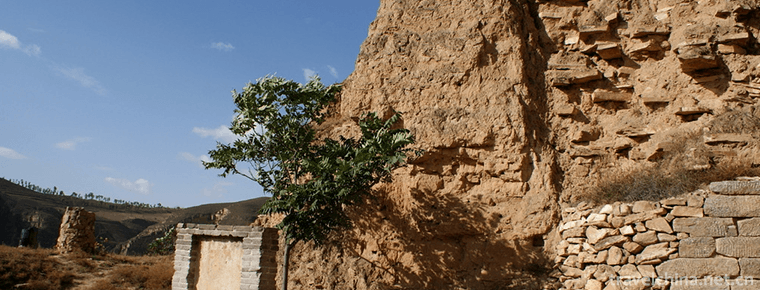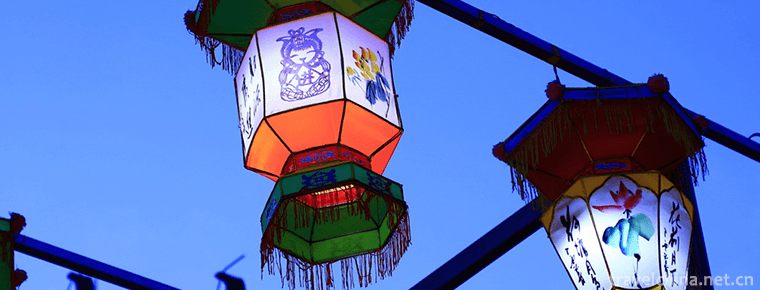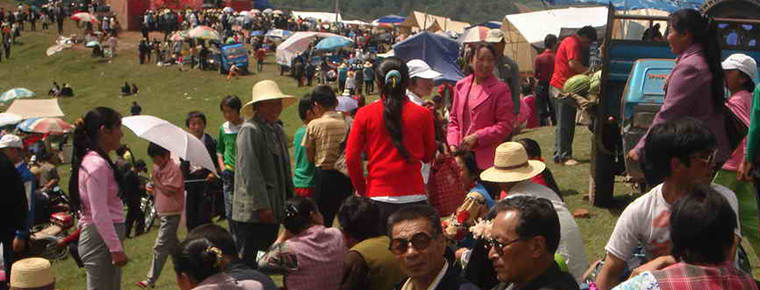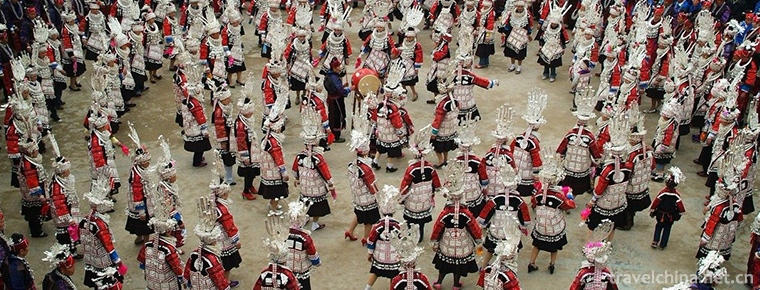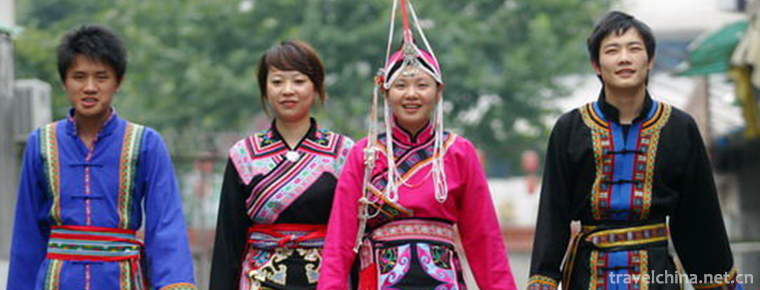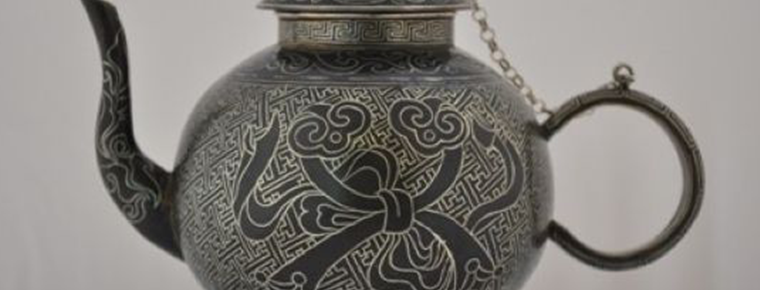Fishermens Opening and Xieyang Festival
Fishermens Opening and Xieyang Festival
Fishermen's opening and Xieyang Festival is a special folk activity in coastal areas of China. It is mainly spread in Xiangshan County, Daishan County, Rongcheng City, Rizhao City and Jimo City in Zhejiang Province and Shandong Province. The fishermen's Ocean-Opening Festival in Xiangshan and Daishan of Zhejiang Province is a folk activity for local fishermen to pray for peace and harvest when they go out to sea. The Xieyang Festival is a folk activity held by fishermen to thank the sea for their gift after the fishing boat returns safely from sea.
As a spiritual activity to express fishermen's inner desire, Kaiyang Festival and Xieyang Festival take sacrifice as the core, folk literary and artistic performances as the main axis, contain a variety of cultural contents, and show the characteristics of entertaining gods and people. According to records, the fishermen's activities of opening the ocean and Xie Yang Festival in Xiangshan have a history of more than 1,000 years, and the most prosperous period was from Yongzheng Period in Qing Dynasty to the Republic of China. The main content of the festival is offering sacrifices to the sea. Its great influence, wide participation and long history are rare among many fishermen's customs in Zhoushan Islands.
Every fishing season, the ceremony of offering sacrifices to the sea is held during the opening and Xieyang Seasons. Fishermen call it "Xie Long Shui Jiu" or "Xing Wen". In history, Daishan sacrifice to the sea was divided into official sacrifice and folk sacrifice. The etiquette and rituals were well-established and the procedure was complete. At present, some fishing villages in Daishan still follow this traditional folk custom. As the representative of Zhoushan folklore, Kaiyang and Xieyang Festivals reflect the fishermen's belief and worship of the Dragon King and the sea gods in the East China Sea, and show the wisdom of the people living in harmony with nature along the eastern coast of China.
Yuanchuang village in Rongcheng City, Shandong Province, has a unique geographical location and climate. Every time the valley rains, deep-sea fish and shrimp will follow the rule of seasonal migration to the Yellow Sea offshore waters in the south of Yuancheng village. Therefore, there is a saying that "fish and birds do not break their promise" and "all fish come ashore in the valley rains".
The fishermen in the courtyard placed the peace and harvest of their fishing career on the Dragon King of the East China Sea. They chose to worship the sea on a rainy day in order to express their devotion and pray for the protection of the Dragon King. Two towns, Shijiusuo and Peijiacun along the coast of Rizhao, Shandong Province, have been engaged in fishery production since ancient times. Local legends say that the thirteenth day of June is Hailong King's birthday. At that time, fishermen gather at Longwang Temple to hold worship activities and arrange fishery production in the coming year. This custom of worshipping sea gods was formed in Hongwu period of Ming Dynasty. It is a concrete manifestation of fishermen's desire for boat safety and fishery harvest.
The Internet Festival in Zhougezhuang Village, Tianheng Town, Jimo City, Shandong Province, also known as "Sacrifice to the Sea", is a grand festival for local fishermen. Internet-surfing ceremony first appeared in Yongle period of Ming Dynasty, and then gradually evolved into a kind of folk custom activity, which has been handed down till now. Zhou Gezhuang Internet Festival is held around the annual Valley rain. The fishermen in the village who are about to go to sea offer sacrifices to the sea god with piety in order to pray for a safe harvest.
Fishermen's Ocean Opening Festival and Xie Yang Festival are typical representatives of traditional marine culture. They have important reference value in the study of folklore, religion, social psychology and local history and culture. It is necessary to take measures to protect and inherit this ancient marine folklore.
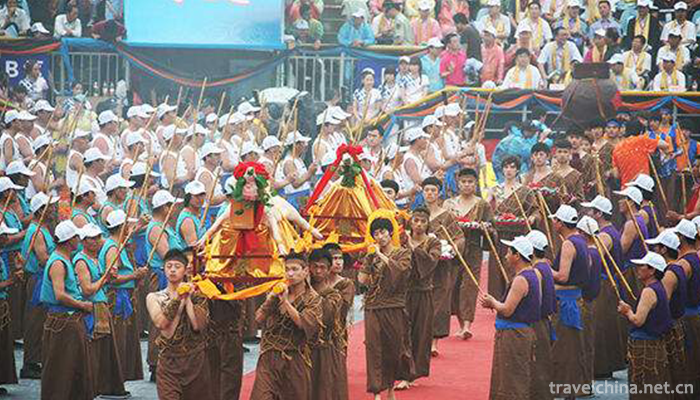
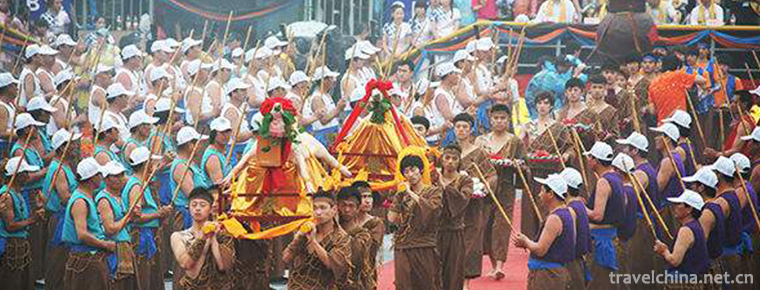
Fishermens Opening and Xieyang Festival
-
Hohhot Laoniuwan Tourist Area
Laoniu Bay is located at the entrance of Shanxi-Shaanxi Grand Canyon. This is the Great Wall, the only typical parallel section of the Yellow River. The widest part of the river is not more than 100 m
Views: 173 Time 2019-01-16 -
Jiuizi Scenic Spot
Yuuzi Square is located in the Central District of Wuhu City. The square covers a total area of 678,800 square meters and its spatial structure is changeable. Priority is distinct and rhythmic
Views: 128 Time 2019-01-29 -
Niangziguan Scenic Area
Niangziguan is a famous pass of the Great Wall of China, known as the Ninth Pass of the Great Wall of China, and it is a must for military strategists of all dynasties.
Views: 259 Time 2019-02-07 -
Qinghai Tibet Plateau Wildlife Park
Xining Wildlife Park, also known as the Qinghai-Tibet Plateau Wildlife Park, is the only large-scale comprehensive wildlife park in the Qinghai-Tibet Plateau with the highest elevation
Views: 205 Time 2019-02-07 -
Xishuangbanna Mengwan Great Buddhist Temple
Situated in the suburbs of Jinghong City, the prefecture of Xishuangbanna Dai Autonomous Prefecture, Yunnan Province, the Monastery is built according to the national AAAA standard.
Views: 139 Time 2019-02-25 -
Zhangjiakou Zhangbei Grassland
Zhangbei grassland is located in Zhangbei County, 70 kilometers northwest of Zhangjiakou. It consists of two grasslands, Zhongdu and Angoli. In Zhangbei grassland, you can ride horses and shoot arrows
Views: 218 Time 2019-03-10 -
Flower Huaer
"Huaer" is a folk song created and shared by Han, Hui, Tibetan, Dongxiang, Baoan, Sarah, Tu, Yugu and Mongolian nationalities in Gansu, Qinghai and Ningxia provinces in Northwest China.
Views: 141 Time 2019-05-04 -
Miao Sister Festival
Miao Sister Festival, also known as "Sister Rice Festival", is a traditional festival of Miao people in Laotun and Shidong areas of Taijiang County, Guizhou Province. It is held from March 1
Views: 145 Time 2019-06-05 -
She Nationality Medicine
She medicine is mainly distributed in Jingning She Autonomous County of Zhejiang Province and in some mountainous areas of Fujian and Jiangxi provinces. She nationality has no written language and is
Views: 139 Time 2019-06-14 -
Production Techniques of Black Copper Walking Silver
The process of making silver from black copper is very complicated. Usually, it has to go through nearly 20 processes, such as refining copper, blanking, pattern carving, silver walking, forming, poli
Views: 166 Time 2019-06-29 -
Sichuan University of Arts and Science
Sichuan Academy of Arts and Sciences, located in Dazhou City, Eastern Sichuan Province, has a history of running higher education which can be traced back to Longshan Academy in late Qing Dynasty, whi
Views: 165 Time 2019-08-31 -
Soil characteristics of Suining
The strata in Suining City are mainly limestone in the lower part and purplish red sandy soil and mudstone in the upper part. Therefore, Suining area is also known as "red soil land".
Views: 322 Time 2020-12-16
